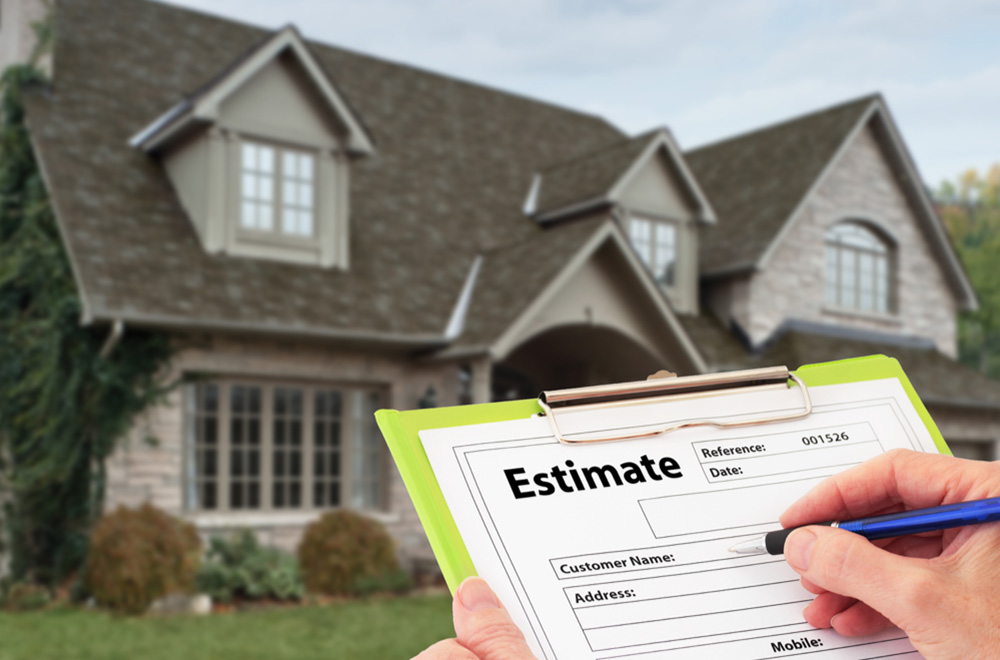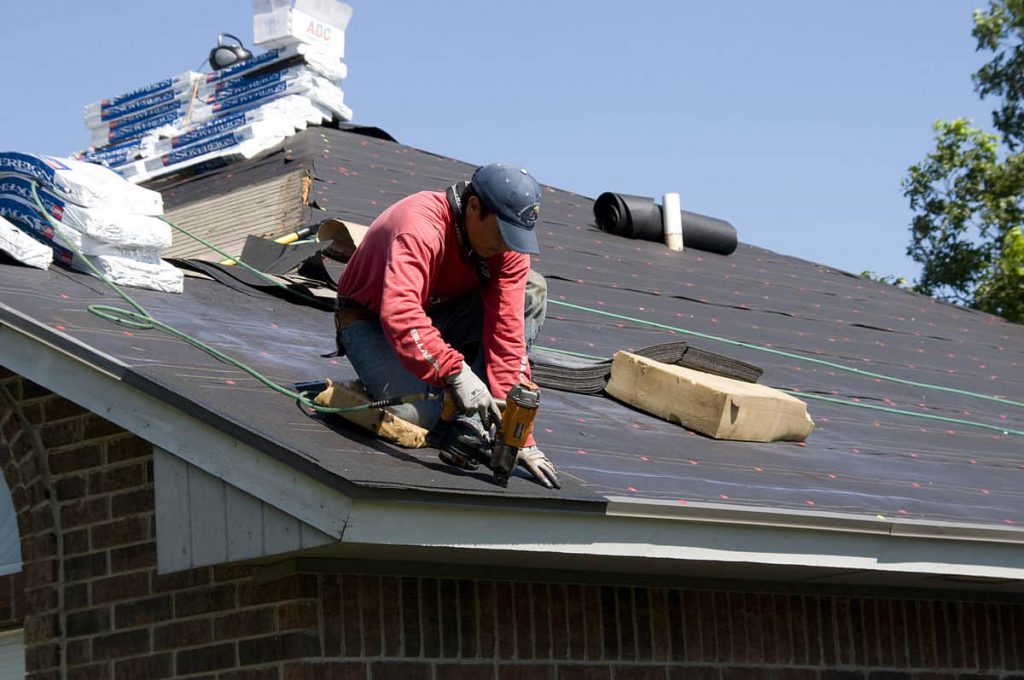15 Questions to ask a Roofing Contractor Before Signing
Replacing or repairing your roof can be expensive and lead to bigger issues if not done by a professional roofer, here are 15 tips to find a quality roofer.
- How long have they been in business?
- Can they provide a list of references?
- Is the company a member of any local roofing associations?
- Are they licensed and bonded?
- Will they provide a written estimate?
- Do they have a warranty and what does it it include?
- Do they offer financing?
- Are your employees covered by workers compensation insurance?
- What will happen to the old roof?
- Do they use subcontractors?
- How do you protect the lawn and landscaping?
- How long will the job take?
- What happens with any unseen problems while working on my roof?
- How do they deal with inclement weather?
- Who should I contact with questions?
1. How long have they been in business?
You can learn a lot about a company by how long they have been in business. If they have been in business for 20-30 years as a successful family business, it is a good sign that they are an experienced & trustworthy roofing company. If they have only been in business a year or two, then you will want to spend extra time evaluating their experience and quality. Beware, if the company has changed their name a few times over the years, it is a good sign that they are trying to hide a bad reputation.
2. Can they provide a list of references?
Any reputable company should be able to provide you with a minimum of 3 references, however it is simply logical for contractors to provide references from customers who they know are satisfied with their work. We think it is better to ask for references from the past three most recent projects. Speaking with recent clients will give you a great indication of what to expect from your potential roofing contractor.
3. Is the company a member of any local roofing associations?
While certainly not a requirement, it is always nice to see when a contractor is a member of one or more local associations. Many cities have roofing associations that companies can join plus other trade organizations. In addition to industry specific associations, a reputable company will often be members of their local Chamber of Commerce, networking groups such as Business Networking International (BNI) and also volunteer for good causes in the community.
4. Are they licensed and bonded?
All most all states require all contractors to be licensed, but the requirements are different depending on the state. Being licensed provides you with a bit more comfort and a course of action in the event things go wrong with your roofing project. Check with your local licensing agent and make sure everything is up to date prior to starting your project or signing any papers.
What does being “bonded” mean? This means he has purchased a surety bond, which will protect you as the homeowner. A bond will provide a certain amount of liability insurance as well as possible. It may also provide compensation to the homeowner should the contractor fail to complete the project as required or contracted.
5. Will they provide a written estimate?
Prior to signing any contracts with any contractor, no matter how well written, be sure to get a written estimate first. An estimate should be broken down detail with an itemized layout. The removal of your existing roof, labor and material costs, and anything that may add to the costs of the original estimate should be outlined in the estimate.
6. Do they have a warranty and what does it it include?
Warranties for a roofing company are often for 25 years or more regardless of the type of shingles you decide to use. Make sure your contractor is clear about coverages, and ask for a copy of the warranty in writing as part of their estimate including the original manufacturer’s warranty on all the materials used.
The more details about the warranty you can get the better, this should include the materials and the work performed, duration, and what needs to happen if it is ever initiated.
7. Do they offer financing?
Larger roofing contractors may offer financing for homeowners who are unable to afford a new roof. If you are in need financing, shopping around is a good way to get a good rate and a better deal. You should check with your bank, but your contractor may offer better rates. Your contractor should provide you with the financing requirements and interest rates in your area.
8. Are your employees covered by workers compensation insurance?
As you likely know, working on a roof is a dangerous activity. In the unfortunate case that someone should fall off your roof while it is being worked on, your contractor’s workers’ compensation insurance should provide the needed protection. If your contractor does not have workers’ compensation insurance, you may be held liable!
It is important that you make sure that your contractor has the appropriate insurance in place. Check the policy with the workers’ compensation company to ensure that it is valid and active.
9. What will happen to the old roof materials?
It may be an easy thing to forget about while replacing your roof, but you need to consider what happens with the materials from the old roof and determine who is responsible for removing the waste. It is important to discuss with your roofing contractor to ensure that you know who will be getting rid of the materials once the project is over. Having this conversation early on will help ensure that everyone is on the same page. Always, get the cleanup plan in writing.
10. Do they use subcontractors?
Some home professional companies like roofers and painters will hire subcontractors to actually perform the work. This can be a warning sign, as there is no guarantee how good they are if they are not related to the roofing company you are negotiating with.
In many cases companies will work with multiple subcontractors and some times they may not have even worked with them prior to starting your job. Why risk thousands of dollars and potentially unexpected damages by working with a company who works with uncontrolled subcontractors?
11. How do you protect the lawn and landscaping?
Even through your roofing contractor is on the top of your house, it is important to think about everything below the roof. This includes vehicles, windows, siding, sidewalks, plants and your landscaping in general. Ask for specific details regarding what they will do to ensure your property is not damaged and how cleanup will work during and after the project is completed.
12. How long will the job take?
During warm weather months, roofing contractors become exteremly busy and may take longer to get to your project than you had hoped. The best roofers may have a wait list that is weeks or even months long, if your roof is not causing significant issues it may be worth the wait to get that great contractor. Find out when your roofer is available to start work. If possible, get the date in writing. Your roofer should also have an estimated finish time.
Roofing projects sometimes take longer than expected due to unexpected damage that was not discoverable until after the old shingles had been removed, this damage must be repaired before work can continue. Your roofer may not be able to give you a definite completion date, but you should be able to get an estimate. Give your contractor a margin of error of a few days, just in case your roofing project goes over time.
13. What happens with any unseen problems while working on my roof?
Have an honest and realistic conversation with your roofer and ask for any potential problems that may arise during the installation. Obviously every roof unique and poses different challenges. This open discussion is just a way to have a good peace of mind to keep any surprises from happening at the end of the day.
14. How do they deal with inclement weather?
No matter where you live in the United States, the weather can be unexpected at times and cause headaches for you and your contractor. These things happen, it only makes sense to have a plan in place to accommodate any of these unexpected weather related surprises. Including rain, snow, wind or anything that could possibly damage your home or landscape.
These issues can lead to more cost, delayed completion and in the worst case cause additional damage to the exterior and even interior of your home. Plan for the worst but hope for the best.
15. Who should I contact with questions?
Quality contractors are methodical about maintaining an open and consitent line of communication with their clients. A contractor would prefer to answer client questions directly rather than the client talking to employees or subcontractors. Find out who the primary contact person is for you to reach out to with questions and issues.
Your roofing contractor may hire subcontractors to complete projects. If this is the case, your contractor might not be on-site while the bulk of the work is being done. In these cases it is even more imporatnt to know who to contact with questions and concerns.
Stay connected with who your contractor hired for communication with the client to make sure the work is being completed as expected, whether they’re permanent employees, leased employees, temporary employees, or subcontractors.
Home Pro Partners
Skilled laborers... publish a Home Pro Partner profile and invite trusted referral partners to your company profile.
Reach new customers with Home Pro Partners, no lead fees, no gimmicks, no hassle.




